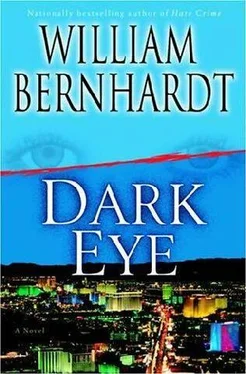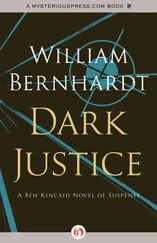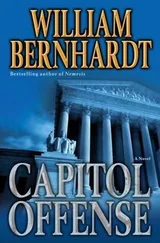“Tell me the truth,” the host said, leaning forward in her swiveling chair. “This Poe stuff is mostly for kids, isn’t it?”
“Not at all,” the man replied, straightening the cuff on his tweed jacket. “Poe was an important figure in American literature-indeed, in world literature. He invented, or at least defined, the modern short story as a literary form. He invented detective fiction, wrote the first true science fiction story. He invented symbolist poetry and the New Criticism, which would be fully realized only half a century later, during the Modernist era. He may not be America’s greatest writer, but I would be hard pressed to identify one whose contributions were more widespread. Poe had a huge impact on many great writers. Oscar Wilde. Jules Verne. Thomas Pynchon. Nabokov. Poe has fallen out of favor with my academic colleagues at this time, who tend to favor Faulkner as the chief figure in American literature. But Poe’s influence has been vastly greater.”
“But Dr. Watson… Poe may have been a good writer, but wasn’t he kind of a freak?”
“Much of the Poe persona as we know it today was the creation of his literary executor, Rufus Griswold, who was jealous of Poe’s work and sought to destroy his reputation. He began this stereotype of Poe as a dark, cruel, nasty, abusive alcoholic. In fact, most accounts from contemporaries who knew Poe describe him as charming, witty, intelligent, generous, courteous, even chivalric. Women adored him; toward the end of his life he was seeing several wealthy socialites at once. He had lived in the North, the South, and even England, but always considered himself a southern gentlemen and behaved accordingly. Except when he was drinking, of course.”
“But those stories he wrote-that’s really twisted stuff. Burying people alive-”
“Premature burial was a widespread and much discussed phobia in the nineteenth century. Not just with Poe. There had purportedly been a true incident that got great play in the papers. People began buying coffins with escape hatches that could be activated from the interior or that had a bell the interred could ring if consciousness returned.”
“Okay, and how about that teeth-pulling business?”
The professor held up his hands. “Make no mistake about it-Poe wrote some strange tales. His imagination was given to the macabre and sensationalistic. But he was trailblazing-writing a kind of story that had never been attempted before. And to some extent, all of his work is united by his strange belief system. Poe believed that there was another world, a better one, that we saw glimpses of when we dreamed. Poe even believed it was possible…”
He switched channels to the press conference, which was late in starting. No doubt they had woodshedded Susan, drilling her on what could and could not be revealed. With so many eyes watching, they must be concerned about her somewhat mercurial temperament. Either that or they were pouring coffee down her gullet, sobering her up, poor thing.
How interesting that she should share the prophet’s infirmity. Remarkable-or a sign of shared destiny?
At last, Susan approached the podium, looking elegant in a sleek blue jacket and white slacks. In the background, he spotted Lieutenant Granger and that new companion, the one who looked as if he barely knew where he was. Susan adjusted the microphone and began.
“My name is Susan Pulaski. I’m a behavioral expert and consultant to Lieutenant Barry Granger and the Vegas PD. I have a prepared statement, and then I’ll be able to answer some questions.
“Let me make one point up front. Our investigation into these murders is ongoing. All available resources have been assigned to this case, and we are also working in consultation with federal authorities and various experts in the fields of serial crime and sexual deviancy.”
He raised an eyebrow. Sexual deviancy? He had never touched any of these girls in that way. Surely she must know that.
“All our available manpower and then some is working around the clock to bring this killer to justice. While we are not prepared to make an arrest at this time, we have several very promising leads. We are working closely with a top FBI profiler and we hope to be in a position to make an arrest soon.”
A bit of bravado? he wondered. Probably fed to her by O’Bannon, necessary to keep the press at bay. But unwise. He had no intention of being apprehended.
“This is what we know for certain. The first victim, as I believe most of you already are aware, has been identified as Helen Collier. She died of asphyxiation after being buried in a mock coffin at the Transylvania hotel. The second victim was Annabel Spencer, a mathematics student from MIT, apparently a weekend visitor who had been gambling at some of the local casinos. She died from acute blood loss. Her body was hidden in an abandoned aircraft stowed on a back lot at McCarran International. We have one possible eyewitness and a host of physical evidence.”
Hands shot up, but Susan ignored them, continuing with her statement.
“It is true, as has been speculated in the press, that the killer obtains inspiration from the works of nineteenth-century American writer Edgar Allan Poe. Both bodies were left with cryptic messages drawn from the works of Poe. The murders appear to be reenactments of scenes from Poe. While this is colorful and good for headlines, it is not particularly helpful in tracking the killer, nor is it unprecedented. Past serial offenders have been known to derive inspiration from the zodiac, old movies, The Catcher in the Rye, even Beatles songs. What is important is that we focus not on the superficial trappings but on the personality that lies beneath it. Understanding that personality, we believe, is the key to preventing future crimes.”
She folded her notes and looked out into the crowd. “I can take a few questions now.”
Again, the hands flew upward. Susan scanned the gallery. She’s looking for something, he realized, but what? A familiar face? A friend somewhere in the valley of the vultures?
She pointed.
“Lieutenant Pulaski, do you have a description of the killer?”
“I’m not prepared to provide that information at this time.”
“Does that mean you don’t? Because if you do-”
“I’m not prepared to provide that information at this time.”
He supposed she was hesitant to reveal the description he gave her when he was disguised as Ethan. Very smart, Susan. He hadn’t given her enough detail to make it possible for anyone to find the killer (even were it accurate). Revealing it now only risked potential embarrassment if (when) it turned out to be wrong.
“Do you have a psychological profile of the killer?”
“We are developing and refining our profile every hour of every day. I am not authorized to provide details of the current profile to you.”
An anorexic reporter in the front row cut in. “You know, Lieutenant Pulaski, that will lead some to speculate that you have no valid profile.”
Such thinly disguised calumny. Susan was doing a good job of masking her reaction, but he felt it, all the same. “I can assure you, ma’am, that my colleagues and I are more than able to perform our jobs, and as I mentioned, we have been working in consultation with federal specialists. But we do not feel it would be advantageous to reveal everything we know about the killer at this time.” She apparently couldn’t resist adding, “Use your brain. It isn’t hard to figure out why.”
“What’s his motive?” someone else asked.
“We can only speculate. Certainly we do not believe there is any rational motive, such as greed or jealousy. Given the vagaries and inconstancies of the psychotic mind, determining what delusion motivates him can be extremely difficult.”
Читать дальше









